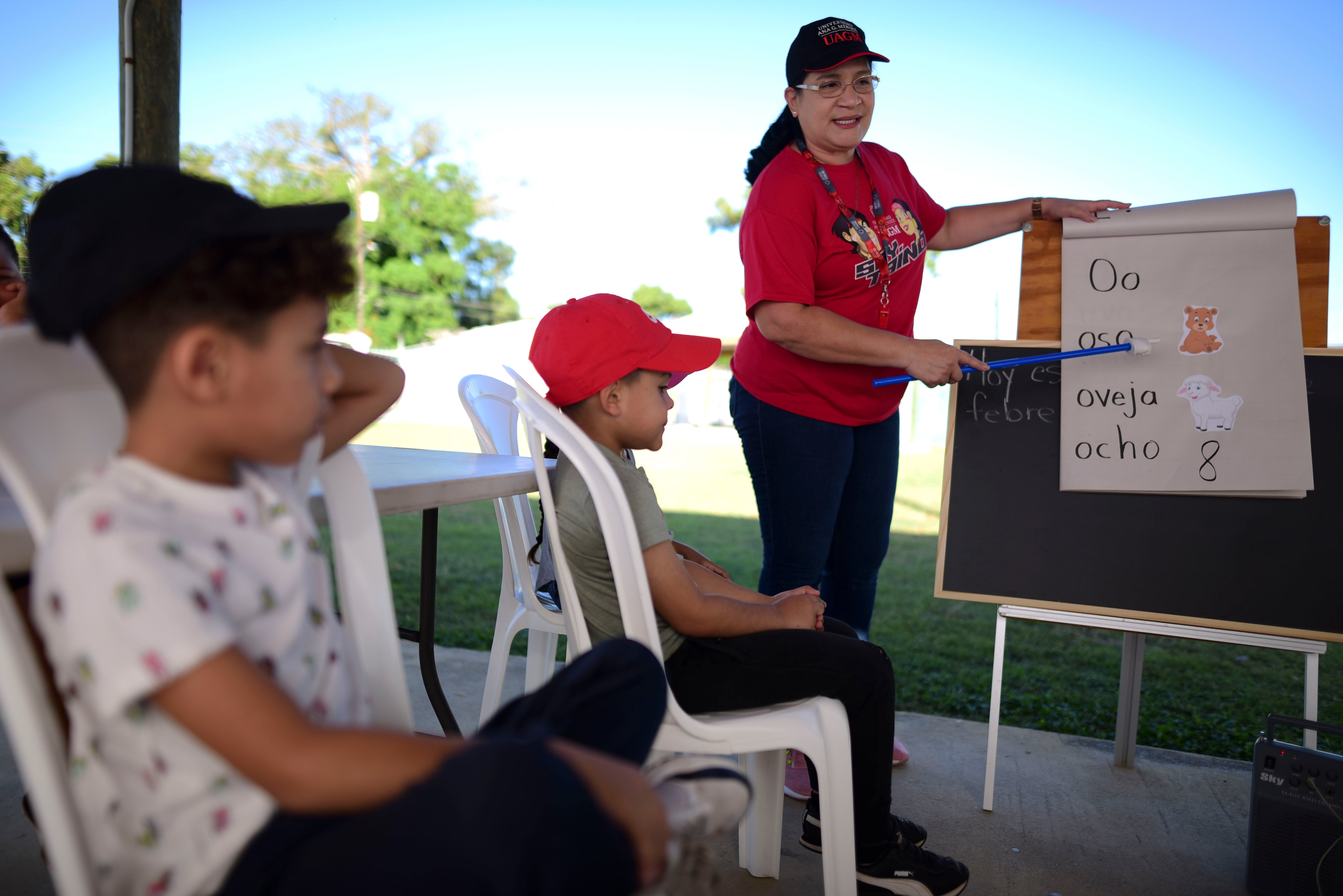Puerto Rico prepares to reopen schools 1 year after pandemic
Puerto Rico officials say five grades will return to in-person classes next month as the U.S. territory prepares to reopen public schools for the first time in a year

Your support helps us to tell the story
From reproductive rights to climate change to Big Tech, The Independent is on the ground when the story is developing. Whether it's investigating the financials of Elon Musk's pro-Trump PAC or producing our latest documentary, 'The A Word', which shines a light on the American women fighting for reproductive rights, we know how important it is to parse out the facts from the messaging.
At such a critical moment in US history, we need reporters on the ground. Your donation allows us to keep sending journalists to speak to both sides of the story.
The Independent is trusted by Americans across the entire political spectrum. And unlike many other quality news outlets, we choose not to lock Americans out of our reporting and analysis with paywalls. We believe quality journalism should be available to everyone, paid for by those who can afford it.
Your support makes all the difference.Puerto Rico officials announced Monday that five grades will return to in-person classes next month as the U.S. territory prepares to reopen public schools for the first time in a year, causing some parents to worry about a potential increase in coronavirus cases.
Kindergarteners, special education students, and children in first, second, third and 12th grades are tentatively scheduled to be back in classrooms at certain schools March 3, said Elba Aponte, Puerto Rico’s education secretary-designate.
“I recognize there is uncertainty among parents and the school community given the announcement of the upcoming reopening,” she said.
To minimize the risk of contagion, Aponte said that in-person classes will be held only two times a week and that students will be dismissed before noon, with parents barred from entering schools. Only eight to 12 students will be allowed in a classroom and school cafeterias will remain closed, although they will offer a “grab-and-go” option.
Masks, hand sanitizers and thermometers will be available at all schools, Aponte said, adding that more than 24,000 employees have already received a first dose of coronavirus vaccine.
“The vast majority concur that it is time for our students, children and youth to be able to have contact with their teachers and classmates,” Aponte said.
She made the announcement via Facebook, prompting a swarm of criticism.
“Sending children to school without vaccines, in a rush and without a plan that exceeds expectations IS A CRIME,” wrote one woman. Another worried about the level of cleanliness and whether teachers or employees will ensure that children have their masks on at all times.
Others wrote that they would keep their children at home. “With great respect, it is crazy to start classes(.) They should wait until August or until conditions permit,” one said.
The island’s Department of Education has not yet identified which schools will reopen. Officials expect to release a list by mid-February.
The Teachers’ Association of Puerto Rico also criticized the reopening, questioning whether the government is sufficiently prepared to avoid an increase in coronavirus cases. Víctor Bonilla, the association’s president, said the organization is requesting that the government provide specific statistics about all department employees who have tested positive for the coronavirus.
“If the government cannot provide that precise data, it’s not in a position to talk about reopening schools in March,” Bonilla said. “We know that under normal circumstances schools are never ready.”
The island of 3.2 million people has reported more than 161,300 confirmed and suspected cases of coronavirus infections and more than 1,880 deaths related to COVID-19.
Authorities have vaccinated more than 266,000 people and are awaiting a slight increase in the more than 41,000 doses received weekly. The Health Department recently announced it will only vaccinate people 65 years and older this month, since older people are the most vulnerable group.